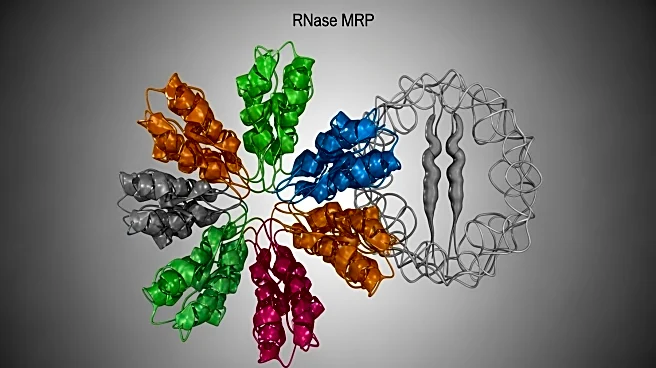What's Happening?
Recent research has delved into the composition and function of the RNase MRP complex, particularly focusing on its role in 40S ribosome biogenesis. The study highlights the genetic co-dependencies of RNase MRP components,
such as RPP14, and their interactions with the uncharacterized gene C18orf21. The findings suggest that the loss of RMP24 and RPP14 affects 18S rRNA production, indicating a specific impact on 40S ribosome formation. This research utilized genome-wide CRISPR-Cas9-based viability screens across over 1,000 cancer cell lines to identify these genetic interactions.
Why It's Important?
Understanding the role of RNase MRP in ribosome biogenesis is crucial for insights into cellular processes and potential implications in cancer research. The identification of genetic dependencies and interactions can lead to new therapeutic targets, especially in cancer treatment where ribosome biogenesis is often dysregulated. The study's findings on the specific impact of RNase MRP components on 40S ribosome production could pave the way for novel interventions in diseases characterized by ribosomal dysfunction.
What's Next?
Future research may focus on further characterizing the interactions between RNase MRP components and other cellular pathways. There is potential for exploring therapeutic applications targeting these interactions in cancer and other diseases involving ribosomal biogenesis. Additionally, the study opens avenues for investigating alternative rRNA-processing pathways that may compensate for the loss of RNase MRP function.
Beyond the Headlines
The study also raises questions about the evolutionary conservation of RNase MRP functions and their implications in different organisms. The potential for alternative rRNA-processing pathways suggests a complex regulatory network that could be explored for broader biological insights.









